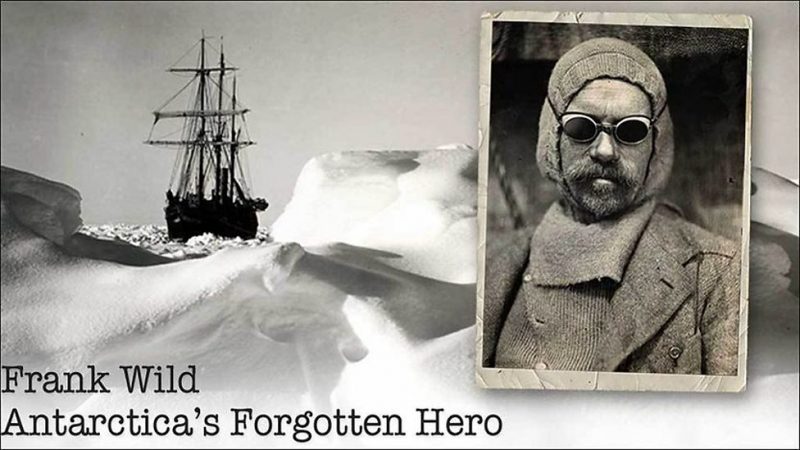East to West- Between Two Rivers Ep.1 – East to West is an exciting seven part series charting the birth of a flourishing civilisation in the Near and Middle East, and its dynamic influence on the West. Examining a largely untold story with a fresh perspective, the series follows the spread of civilisation across the globe from the first cities of Mesopotamia. This episode follows the birth of civilisation in Anatolia and the Middle East. We go back to the very beginnings, when hunter-gatherers pause in Gobekli Tepe and start to build the world’s first structures around 12,000 years ago.
This episode follow the first stages of civilisation: the rise of agriculture, governance and writing in Mesopotamia. The latter part of the episode explores Alexander’s arrival in Troy and his conquest of the Persian Empire – a journey that made him realise what he owed to the East. In Miletus remarkable new finds show that the Greek god Aphrodite began as the eastern god Ishtar.
A range of archaeological and other evidence is marshalled to present a compelling case for cultural transfer from East to West. There is a wide-ranging description and discussion of eastern civilisation with some emphasis on the Babylonians.
East to West Episode 1 – Between Two Rivers – The Dawn of Civilization
Birth of the First Cities in Mesopotamia
In the annals of human history, the emergence of the first cities in Mesopotamia stands as a defining moment. The fertile land, nestled between the Tigris and Euphrates rivers, birthed a civilization that would forever change the trajectory of humanity. In this cradle of civilization, our ancestors took the initial steps towards urbanization, laying the groundwork for the bustling metropolises we see today.
The city of Uruk, often regarded as the first true city, played a pivotal role in this transformation. With its complex architecture, intricate canal system, and burgeoning population, Uruk exemplified the potential of urban living. The city was a beacon of progress, its ziggurats reaching towards the sky, symbolizing humanity’s unending quest for growth and advancement.
Yet, the cities of Mesopotamia were more than architectural marvels. They were hubs of innovation and learning, where the first forms of writing, known as cuneiform, were developed. This breakthrough in communication facilitated record-keeping, trade, and governance, fostering a level of societal organization previously unseen.
The Influence of Mesopotamian Civilization
The impact of Mesopotamian civilization extended well beyond its city walls. With its sophisticated agricultural techniques, the civilization became the breadbasket of the ancient world, attracting traders and settlers from far and wide. This influx of diverse cultures spurred a melting pot of ideas, influencing fields as diverse as astronomy, law, and literature.
Notably, the Code of Hammurabi, one of the oldest deciphered writings of significant length, originated from Mesopotamia. This ancient legal text, inscribed on a stone stele, reflected a society that sought justice and fairness, underpinning the rule of law in a diverse and complex urban environment.
Further, Mesopotamia’s mythologies and religious practices, such as the worship of gods like Anu and Enlil, found echoes in other civilizations. These spiritual beliefs, conveyed through epic tales like the Epic of Gilgamesh, have been woven into the tapestry of human culture, their influence evident in the world’s major religions.
Spread of Civilization across the Globe
The seeds of civilization, once planted in the fertile soil of Mesopotamia, began to spread across the globe. Traders, explorers, and conquerors carried the lessons learned in the cradle of civilization to the farthest corners of the ancient world. From the sun-drenched city-states of Greece to the majestic kingdoms of India, the influence of Mesopotamian civilization was undeniable.
The Phoenicians, renowned as seafaring traders, are a prime example of this dissemination. They established colonies across the Mediterranean, bringing with them the advancements of the Mesopotamian world. Their alphabet, an adaptation of the cuneiform, would become the basis for Greek and Roman scripts, illustrating the profound ripple effects of Mesopotamian innovation.
Moreover, the Silk Road, a network of trade routes connecting the East and the West, served as a conduit for cultural exchange. Ideas, goods, and technologies flowed along this path, linking civilizations and fostering a global dialogue that shaped the course of human history.
Traces of Mesopotamia in Modern Societies
Even today, the echoes of Mesopotamian civilization reverberate in our modern societies. The principles of governance and law that emerged from the city-states of Mesopotamia have evolved into the legal and political systems we know today. The pursuit of knowledge, exemplified by the scholars of Babylon, mirrors our modern-day emphasis on education and research.
Our urban landscapes, too, bear the imprint of Mesopotamia. The ancient city of Uruk, with its bustling markets, grand temples, and administrative buildings, can be seen as a prototype for our contemporary cities. Modern urban planning, with its focus on infrastructure, zoning, and public services, owes a debt to the city builders of ancient Mesopotamia.
Moreover, the legacy of Mesopotamian art and culture persists in our time. The Epic of Gilgamesh, one of the earliest works of literature, continues to inspire writers and artists. Its themes of friendship, loss, and the search for immortality resonate with audiences, bridging the temporal divide.
Civilization: A Journey Through Time
The journey of civilization is a testament to humanity’s resilience and creativity. From the fertile plains of Mesopotamia to the skyscrapers that punctuate our modern skyline, we have continuously strived to build a better world.
Yet, as we marvel at our accomplishments, it is crucial to remember our roots. The civilization that blossomed in Mesopotamia set the stage for our collective journey. Its innovations in agriculture, governance, writing, and urban planning laid the foundations for future societies.
As we navigate the complexities of the 21st century, the lessons from Mesopotamia remain relevant. They remind us of our shared heritage, of our capacity for ingenuity, and of our enduring quest for progress. In the tapestry of human history, the threads of Mesopotamia shine brightly, a testament to our indomitable spirit.




